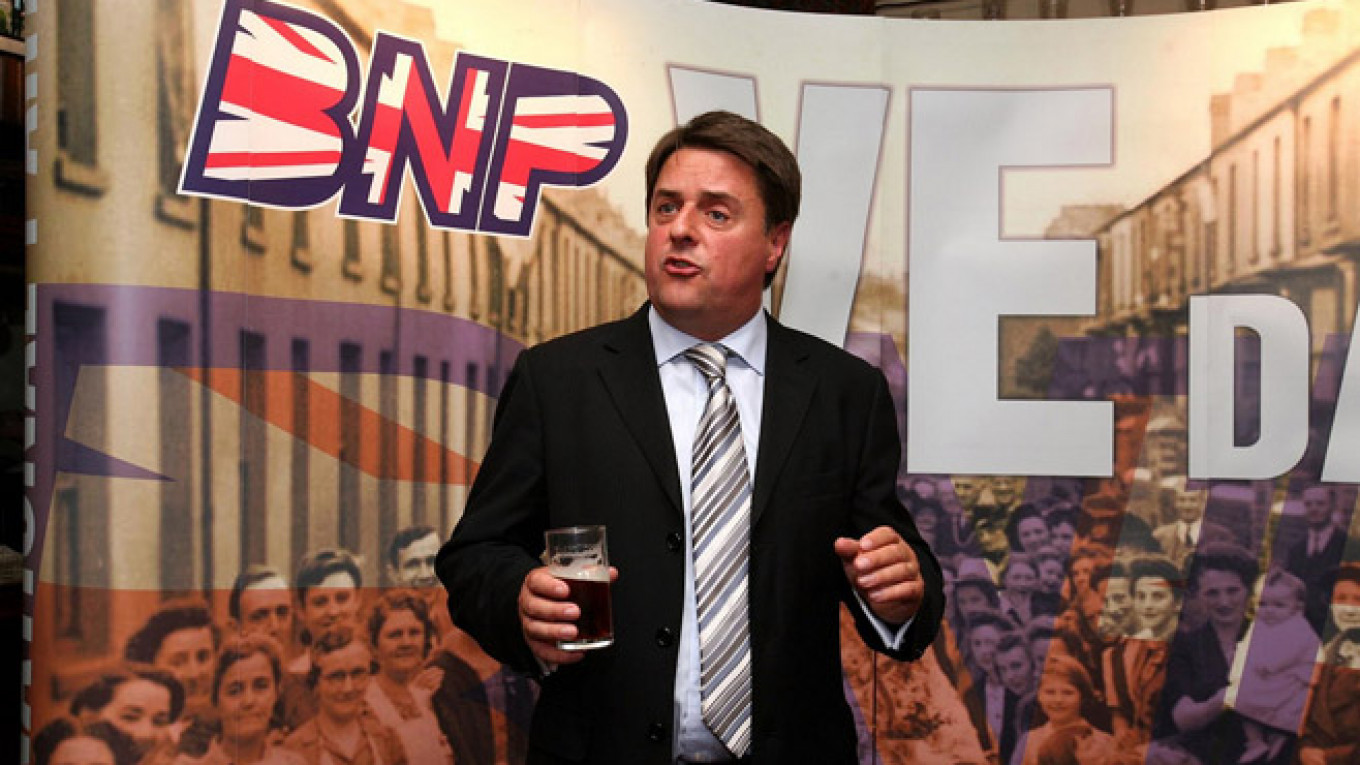It has long been customary for Kremlin spin doctors to claim that black is white and white is black — even when there is no apparent need to distort the truth.
A good example is the first International Russian Conservative Forum that took place in St. Petersburg on Sunday. Representatives of European far-right parties that support President Vladimir Putin gathered at a Holiday Inn in the northern capital.
The event might have more aptly been called "The Forum of Putin's Friends" or at least "The Forum of Russia's Friends" because neither the list of participants nor their remarks during the event had anything in common with political conservatism.
I think the participants themselves were well aware that "Conservative Forum" was a misnomer. They clearly did not come to St. Petersburg to establish closer ties with some abstract group of "Russian conservatives."
And anyway, Putin himself is no conservative. To earn that title he would have to be a family man whose respectable and bourgeois personal life was open to public view. Candidly, these delegates were in Russia to get money, and my guess is that the Kremlin gave it to them.
It calls to mind the Soviet-era organization Communist International, or "Comintern" for short. That was also a motley crowd that first Vladimir Lenin and later former Soviet leader Josef Stalin brought together.
The more totalitarian the Soviet Union became, the fewer sincere supporters in Europe it could attract. But driven by a lack of money at home, delegates from the around the world who called themselves "communists" convened in the Russian capital with astonishing regularity — because Moscow openly funded communist organizations. Of course, that gamble ended badly for many.
Once Stalin saw that he might form an alliance with Nazi Germany — and even before the Molotov-Ribbentrop Pact — Stalin began the mass imprisonment and shooting of his former friends.
For example, the authorities arrested and sent to Siberia more than 100 members of the Communist Party of Italy who had sought refuge in the Soviet Union from Italian dictator Benito Mussolini, and who definitely held no ill feelings toward Stalin.
And once Stalin signed the pact with Hitler, that was the end of the Comintern. No trace of it remained — to the extent that Soviet-era libraries received orders to destroy all books that so much as mentioned the organization.
From that point on, Stalin's regime never even remotely alluded to the beautiful communist paradise that the European communists dreamed about.
The same is true now. Putin is attempting to create a so-called "conservatives international." That way he hopes to sow division in Europe by breathing life into marginal, ultraradical organizations, regardless of their ideology. In fact, the worse they are the better.
Even if those politicians have little hope of gaining widespread voter support at home, any social unrest in Europe that results from radicalizing marginal groups will strengthen Putin's hand. That is Putin's only goal, and of course he has no long-term plan for supporting European "conservatives."
Like any good KGB officer, Putin considers each European politician who accepts his money as an agent of influence abroad. And, of course, Putin will demand that these forum delegates at least remain supportive of Moscow's policy, and that they perform specific "favors" to be worked out later by the Kremlin.
Putin has a very poor understanding of the foundations on which Western democracy is built. He actually imagines that by creating a sort of "international of marginalized radicals," he has managed to plant a land mine that has the explosive power to one day destroy European unity.
Andrei Malgin is a journalist, literary critic and blogger.
A Message from The Moscow Times:
Dear readers,
We are facing unprecedented challenges. Russia's Prosecutor General's Office has designated The Moscow Times as an "undesirable" organization, criminalizing our work and putting our staff at risk of prosecution. This follows our earlier unjust labeling as a "foreign agent."
These actions are direct attempts to silence independent journalism in Russia. The authorities claim our work "discredits the decisions of the Russian leadership." We see things differently: we strive to provide accurate, unbiased reporting on Russia.
We, the journalists of The Moscow Times, refuse to be silenced. But to continue our work, we need your help.
Your support, no matter how small, makes a world of difference. If you can, please support us monthly starting from just $2. It's quick to set up, and every contribution makes a significant impact.
By supporting The Moscow Times, you're defending open, independent journalism in the face of repression. Thank you for standing with us.
Remind me later.






